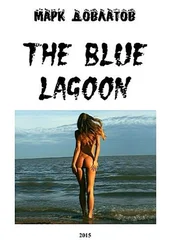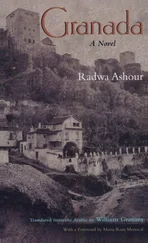I found such talk inauspicious — it seemed to bode ill for the future. I said to myself, ‘If you marry him, some mishap will befall one of the boys, possibly costing him his life.’ After thinking about it for two weeks, wearing myself out with the effort to persuade myself that my fears were nothing but superstition, that the man hadn’t said anything to warrant such alarm on my part, I went to him, my mind made up. He didn’t understand. I did no more than state my decision — I didn’t explain. He tried to sway me, to persuade me — patiently, kindly, good-naturedly he tried. Then, the last time we met, he said I was mad, disturbed, unable to take responsibility. I left him, repeating to myself, ‘There’s nothing delusional about it — it’s intuition, true intuition.’
My mother didn’t like the twins. She thought they pulled me away from her. It annoyed me that she didn’t mention them in her letters or ask about them when we spoke on the telephone. I repeated to her that for the first five years I couldn’t afford a ticket to travel to Paris, and that the twins had nothing to do with that.
We kept in touch via letters and telephone calls, in general. I would ring her on her birthday and she would ring me on mine. I never told her that I resented her not having come to Cairo during the mourning period for my father. I reproached her, but without voicing my reproach to her. Six years after my father died, I was able to buy a discounted ticket to Paris. My situation at work didn’t allow me to be away for more than a week. My mother was short-tempered and irritable. She said I talked too much about the boys. She kept forgetting their names, or getting them wrong; I would repeat each of the names to her slowly, but she would forget them or immediately say them wrong again.
Three years later, I had plenty of opportunities to do simultaneous translation, and this enabled me to travel again to Paris. I took Nadir and Nadeem with me. I thought, ‘She’ll get to know them and love them, and she’ll realise that her family is bigger than she thought.’
I wrote to my mother, saying, ‘This time I’ll spend a whole month with you. We’ll go together to visit your village, and you can acquaint me with all the places where you spent your childhood.’ She greeted this proposal without enthusiasm.
I didn’t bring the subject up again. I settled for confirming with her that she was to take her annual holiday from her job during the same period that we would be there.
As far as she knew I had dropped the idea of visiting the village. I hadn’t, though.
It took months to get ready for the trip, since it wasn’t a matter only of obtaining visas and buying airline tickets, but also of a kind of research and investigation — it made me feel like Christopher Columbus, about to set off on a journey to change history and geography, as well as the fates of millions of human beings. I would laugh at myself while I conducted my research by letter and fax, making telephone calls to put questions to friends and acquaintances and tourist agents. My mother’s village was in Haute-Savoie, on the border of France and Switzerland, and before setting out I had to find out which would be the best, simplest, and most economical way to travel: to go by train from Paris to Douvaine, then by taxi to the village; or travel to Thonon — a neighbouring village, accessible by train, situated on Lac Léman — from which we could take a ferry to my mother’s village; or to travel from Paris to Geneva, and from there cross the border back into France on our approach to the village. I needed maps, as well as information on distances and train routes — and the Internet era had not yet made its appearance, with the answers to all my questions to be found among its vast offerings or by sending a number of e-mail messages to people I might or might not know. I spent days and nights inquiring, gathering information, comparing, calculating, and, setting up budgets, and then replacing one budget with another. At last I made a decision — which, in its turn, required further arrangements: to register in a driving school and then apply for an Egyptian driving licence, which would in turn enable me to acquire an international driving licence.
Appropriate arrangements were made for my mother’s sixtieth birthday. It was going to be a surprise, which would please her, just as visiting her village after so many years away from it would please her. She would see the house in which she had been born, the streets she had trodden in her girlhood, the lake she had swum in, the beach on which she had raced on her bicycle with a boy or girl her age. She would say, ‘Here… in this spot… in this corner… on this hill… your grandfather was sitting here when… and your grandmother was standing there on the day that…’ My imagination ran ahead of the visit, racing toward it, elated at the gift I was giving my mother, and longing for what I had not lived of my mother’s childhood and her personal history.
It was a fiasco from the start.
My mother, when I revealed to her my planned itinerary, said, ‘We can leave the twins in Paris — we’ll only be gone five days!’
At that moment the child I had been reared her head. She was ready to scream at my mother that she was heartless and mad. I scolded the child, ‘Shame on you, you little devil!’ and answered my mother calmly, ‘The twins are only nine years old and they don’t speak French. What you’re suggesting is impractical.’
She added insult to injury. ‘You’re doubling your expenses unnecessarily. It would have been better not to bring them with you to France, since you have this idea of going to Yvoire.’
I paid no attention to what she’d said. I began telling her all about the arrangements and the plan, but she wasn’t listening.
Then the express train to Geneva: four hours. One night in a Geneva hotel. In the morning, a rental car, which I drove over the border to Yvoire. Two nights in a hotel and a day in Annecy. Back to Geneva, and another night in a hotel. In the morning, the train back to Paris.
My mother spoiled the trip. She spoiled it deliberately and systematically. She ruined every aspect of it, every single day of it, wilfully, as if she had made an earnest decision to do so, then put it into action, exerting her efforts to the utmost degree in order to carry out her purpose. I bear witness that she succeeded magnificently in this. When we got back to Paris, she and I quarrelled bitterly. She said that, for me, the trip to Yvoire had been merely a sightseeing tour. She said, ‘You chose a tourist town that would amuse you and the twins to visit.’ Her words were inordinately cruel. She added, ‘I can’t put up with the twins any longer — it’s annoying to me, having them here!’
I took the twins and went to a hotel, and didn’t see her again until a few hours before we left France, to say goodbye.
I travelled for the last time from Cairo to France in haste, because my mother was in the hospital. I attended her for a week. I kissed her forehead and her hands and went on kissing them. I kept saying, ‘Don’t be angry with me!’ She smiled weakly and said, ‘ C’est la vie .’ Then she added, ‘Life is strange!’ The following three days I visited her in the intensive care unit. I wasn’t allowed to go in. I would stand in the doorway, despite the amazement of the doctors and the hospital staff.
And then she died.
I spent a week in her flat, sleeping in her bed, bathing with her soap, drying myself with towels she had used, and eating from tins she had bought. For the first four days that was all I did. On the fifth day, although I hadn’t set an alarm clock, I was roused from sleep as if an alarm had woken me. I said to myself, ‘There are only two more days.’ I began organising her things: her clothes, her underwear, her towels and bed linen. I folded everything and put it in a large cardboard box. I put shoes and handbags into another, smaller box. I put books into a third box. Then I transferred them one by one to a huge receptacle, in a nearby street, bearing the name of a charity organisation. On the way back home I bought a sandwich, a bottle of juice, and an orange. I put them in the kitchen and began on the papers and photographs: my mother’s birth certificate and those of her parents; her marriage licence and divorce certificate, her identity card, her passport, her ATM card, and her health insurance card. I put all this into a folder and turned to the photographs: pictures of her, of us, of my father, and of her mother and father; pictures from Paris, from Yvoire — her birthplace — in Annecy, where she had taken trips with her classmates; pictures from Cairo and Alexandria and pictures from the village, with my grandmother and my aunt. I carefully wrapped the photographs in a handkerchief and consigned them to another folder. Then I turned to the letters: letters from her parents and from friends, papers in her handwriting and a medium-sized journal in which she had kept some notes — sporadic ones that she would begin writing and then stop. I placed the papers in a leather portfolio and put it with the two folders into the hand-luggage I had brought with me to carry on the aeroplane. To these things I added her two pairs of prescription glasses. In the bag with my clothing I put three of her dresses that I had always loved to see her wear, one of her bed sheets, a headscarf, and a shawl she had used during my previous visit to her. I added five of her books, and then packed my clothes. I ate the sandwich and the orange, and drank the juice. I sat in front of the television, where I drifted off to sleep lying fully-clothed on the sofa, and didn’t awaken until morning.
Читать дальше











